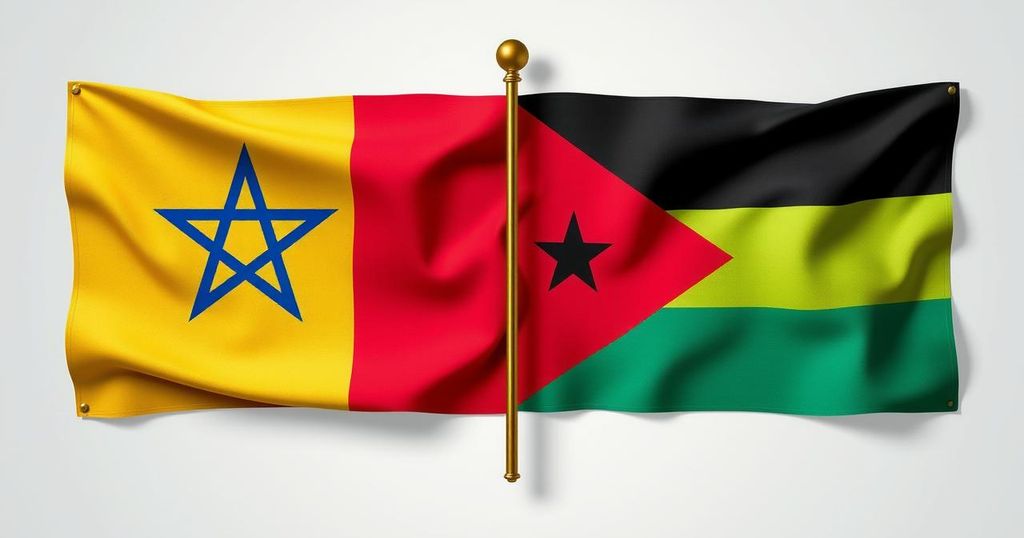Ethiopia and Somalia have resolved a diplomatic dispute relating to claims over Somaliland, as stated by Somalia’s Foreign Minister Ahmed Moalim Fiqi. Despite the acknowledgment of strengthened ties, Somalia insists it made no concessions. The countries are set to engage in further talks next year facilitated by Turkey to formalize agreements on sovereignty and cooperation.
The recent diplomatic tensions between Ethiopia and Somalia appear to have subsided, as confirmed by Somalia’s Foreign Minister Ahmed Moalim Fiqi. In a statement broadcast on state television, he noted that Somalia had not made any concessions in the resolution process. Although Ethiopia has not explicitly addressed these claims, both nations have expressed a commitment to enhance bilateral relations. The dispute had escalated following Ethiopia’s maritime agreement with Somaliland, an area that Somalia claims as part of its territory.
Last week, a high-level Ethiopian delegation visited Mogadishu, signaling a positive shift in the diplomatic relationship and following Turkey’s mediation efforts to resolve the rift. This delegation, led by Ethiopian Defence Minister Aisha Mohammed, discussed the future of the African Union’s peacekeeping mission in Somalia, amidst ongoing concerns regarding Ethiopia’s military presence and its unclear future role in the region.
Tensions surged last year when Ethiopia planned to establish a naval base in Somaliland, a move Somalia perceived as a direct threat to its sovereignty. Despite ongoing disputes, both nations have now agreed to acknowledge each other’s sovereign rights and pursue mutually beneficial commercial agreements. Upcoming technical talks are scheduled for February 2024 to formalize their understanding. Until then, it remains uncertain if Ethiopia has abandoned its maritime agreement with Somaliland, as Somalia’s position on the matter remains strong.
The diplomatic relations between Ethiopia and Somalia have historically been fraught with challenges due to territorial disputes and regional affiliations. The catalyst for recent tensions was Ethiopia’s signing of a maritime deal with Somaliland, an autonomous region that Somalia does not recognize. For over three decades, Somaliland has sought international recognition, complicating the negotiations between Ethiopia and Somalia. Following a period of heightened tensions and fears of broader regional conflict involving allies such as Egypt, Turkey’s intervention has begun to ease relations, leading to commitments from both nations to respect each other’s sovereignty and collaborate on mutual interests.
The recent developments between Ethiopia and Somalia mark a significant diplomatic turnaround, with both countries demonstrating a willingness to resolve their disputes amicably. Somalia’s Foreign Minister has asserted that the sovereignty of the nation remains intact, and Ethiopia’s involvement showcases a desire to foster better relations. As the two nations prepare for further discussions in February 2024, both governments remain focused on establishing a framework for cooperation that emphasizes mutual respect and commercial benefits.
Original Source: www.bbc.com






